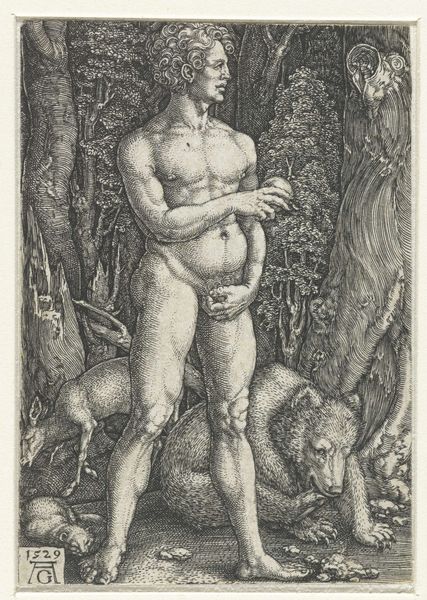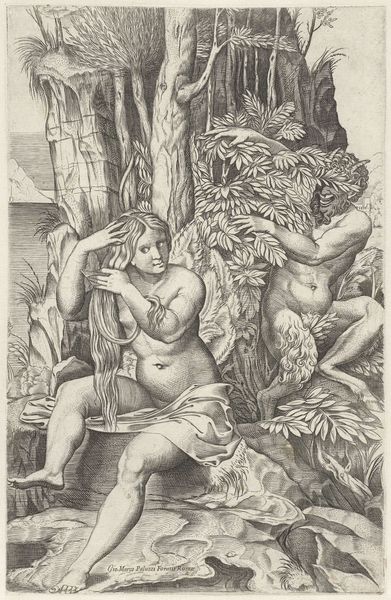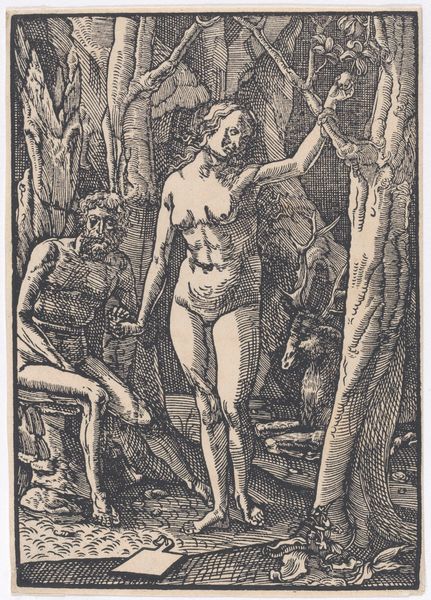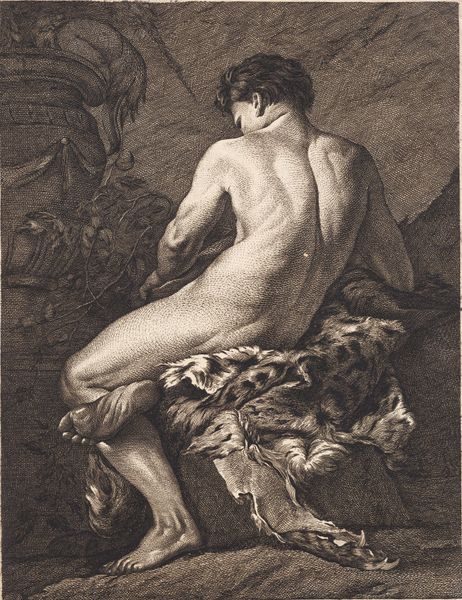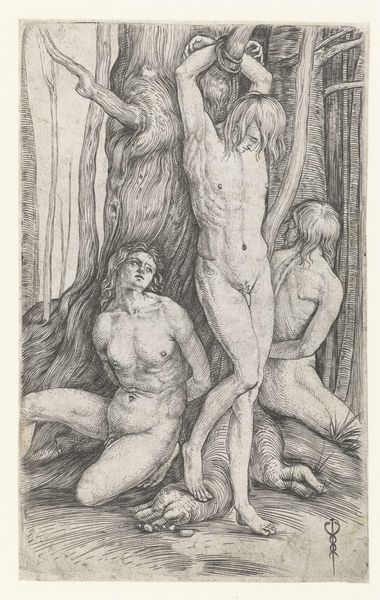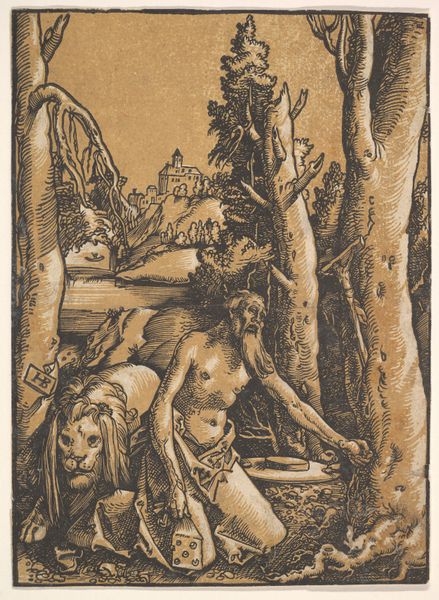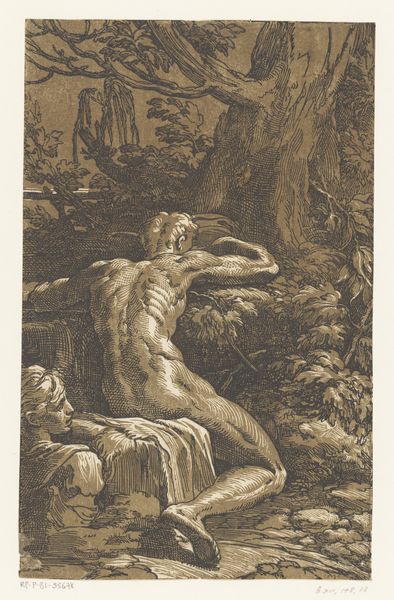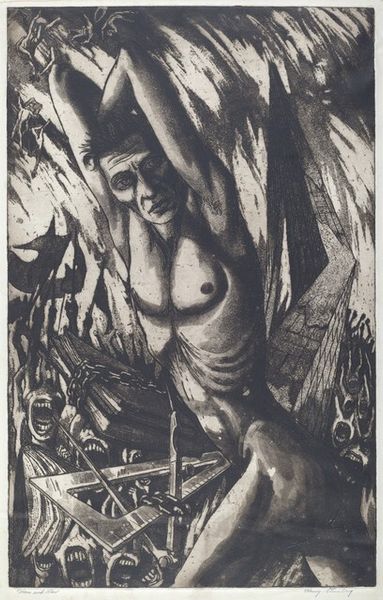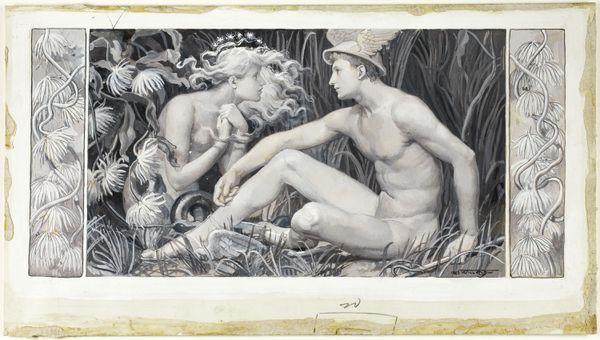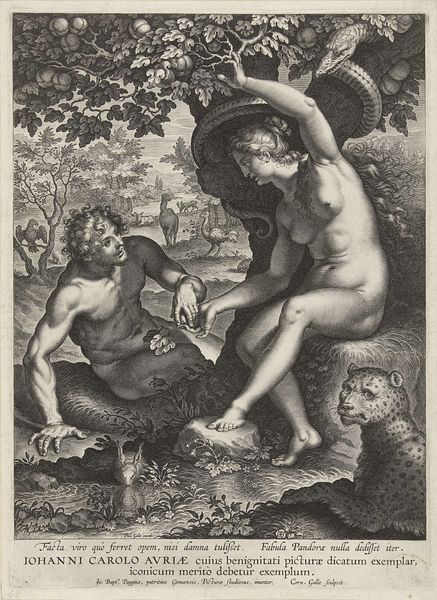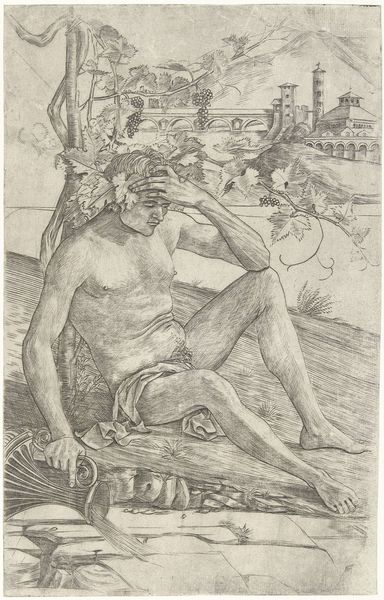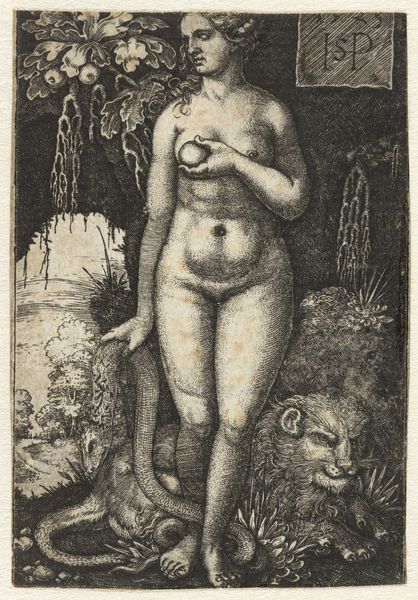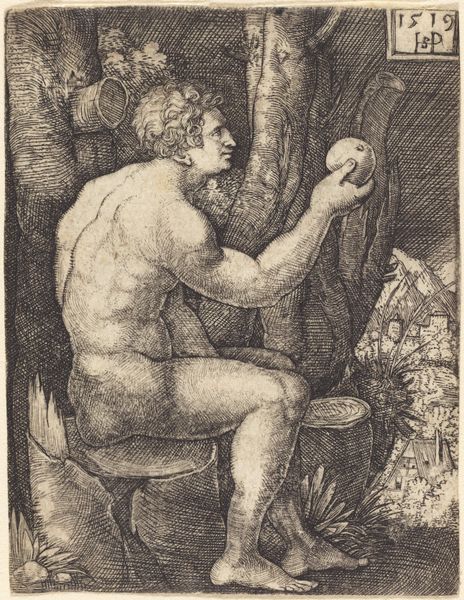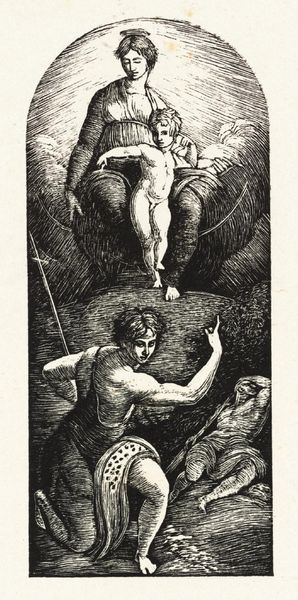
print, engraving
# print
#
landscape
#
classical-realism
#
figuration
#
pencil drawing
#
portrait drawing
#
history-painting
#
academic-art
#
nude
#
engraving
Copyright: National Gallery of Art: CC0 1.0
William Evan Charles Morgan created this etching, Perseus, in 1929, using metal plates and acid to make the image. The process of etching is labor-intensive, requiring careful planning, preparation, and execution. It is a craft that demands precision and patience, in contrast to mass-produced images made with the help of industrial technology. The finely wrought lines create rich textures in the hair, the folds of the skin, and the plants in the surrounding forest. The stark contrast between light and shadow creates depth and drama. The artist also emphasizes the weight and form of the hero’s body, the severed head of Medusa, and the objects that surround them. By choosing etching, Morgan positions himself in relation to the art world while also acknowledging the labor involved in creating a work of art. This challenges the traditional distinctions between fine art and craft, inviting viewers to appreciate the skill and effort involved in bringing this mythological scene to life.
Comments
No comments
Be the first to comment and join the conversation on the ultimate creative platform.
